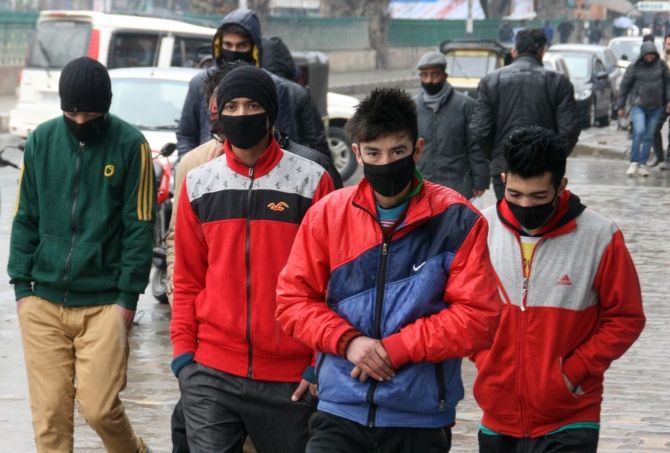
The centre has rushed a team of medical experts to take stock of the situation thrown up by the spread of H1N1 influenza situation in Kashmir valley where a dozen more cases tested positive for the deadly virus on Thursday.
“A team of experts comprising N S Dharamshakti, additional director general, Emergency Medical Relief Division, the directorate General of Health Services, the Union ministry of health and family welfare and S K Jain, joint director, National Centre for Disease Control has been deputed to the state by the central government to assess the H1N1 Influenza situation and provide technical support and guidance for instituting public health measures,” an official statement said.
The statement said, “Governor N N Vohra had earlier this week apprised the Union health minister about immediate requirements for dealing with H1N1 Influenza in the state. Consequently, the Union ministry of health and family welfare has already rushed additional supplies of VTM, PPE, N95 Masks and medicines which have since been received by both the regional directorates of health services in the state.”

A senior doctor at the Sher-e-Kashmir Institute of Medical Sciences said that so far, over 180 cases of H1N1 have been diagnosed and are being treated in the institute whereas six have succumbed to the illness.
The statement further added that 50 frontline health workers were vaccinated on Thursday at the SKIMS in addition to 100 workers already vaccinated.
“The flu continues and is in tandem with similar trends across the country. We have had a late activity which started somewhere in the last week of January and is continuing,” Parvaiz Koul, head of the department of Internal and Pulmonary Medicine at the tertiary care SKIMS told rediff.com.“While previously, the activity would start in December and be on the wane by
March, this year's unusual late start could suggest that the activity might as well continue into next month,” he said.
“Generally, coinciding with the change of weather in March, there is a reduction in activity. However this year's trend has still to unfold. The continuation of the activity simply calls for continuing with precautions and refrain from lowering of guard,” he added.
Koul said that It was difficult to say if rather warmer and drier winter this year compared to previous years contributed to the late initiation of activity, or was it simply related to the travel of people from and to other severely flu affected areas of the country.
“This is our normal flu time and we have documented its existence in Kashmir for the past few years. While it must have definitely existed before as well, there was no documentation previously,” Koul added.
A senior doctor, however, admitted that there was growing fear among the general public about the spread of the infection and people were using breathing masks and avoiding public places.






